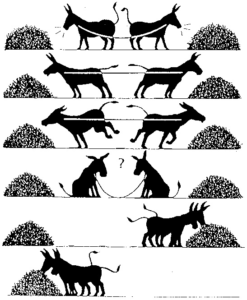This course will examine the two basic models of conflict resolution: the competitive and collaborative approaches. Variations on that theme include third-party intervention and negotiation paradigms. Conflict resolution styles and skills, as well as the theory and practice of managing conflicts of values and needs, are discussed and applied to everyday interpersonal and group disputes. The course will also explore the ethical, cultural, gender, and racial implications of conflict resolution. We will take a building block approach to learning and skill-building by presenting the concept or skill, demonstrating it, providing a practice or discussion opportunity, and finally, critiquing the skill or concept. Students will then use the concepts and skills outside of class and write about their experiences in their journals.
Successful people need highly refined emotional intelligence and conflict resolution skills in today’s stressful and competitive environments. This course, which will follow a workshop format, will help you learn about, practice, and further develop key fundamental theories, strategies, and behaviors for establishing powerful rapport with others and managing conflict creatively and constructively. Core concepts and skills include an understanding of the collaborative and competitive models of conflict, reflective listening, matching and pacing, anchoring, sensory acuity, managing agreement (assertion), problem-solving, and management of interpersonal conflicts of needs and of values. A willingness to examine current behavior and practice new behaviors is essential for success in this workshop. It is expected that you will be able to use these skills on a daily basis to achieve desired outcomes in work and non-work settings and to enhance your overall emotional intelligence and conflict resolution effectiveness.
